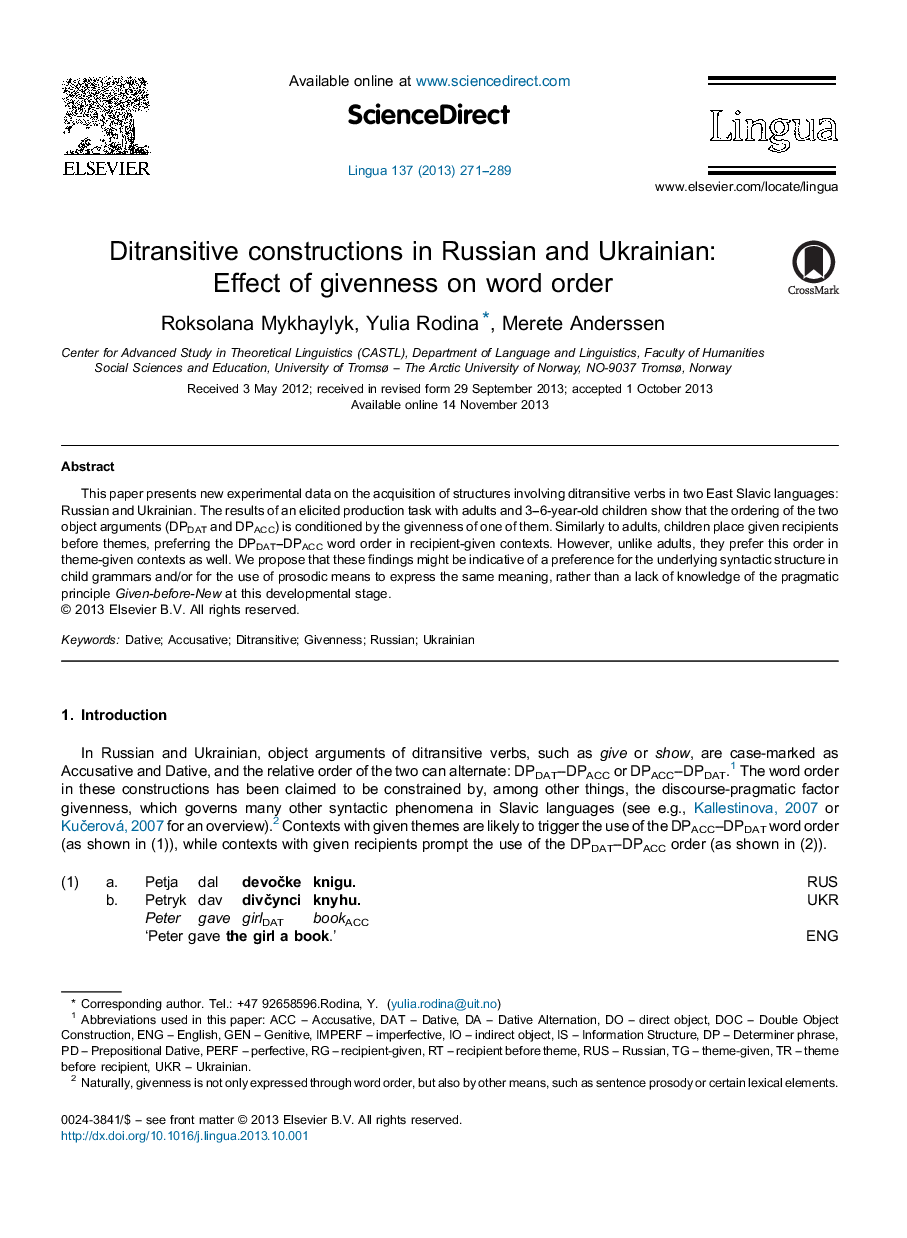| Article ID | Journal | Published Year | Pages | File Type |
|---|---|---|---|---|
| 7298626 | Lingua | 2013 | 19 Pages |
Abstract
This paper presents new experimental data on the acquisition of structures involving ditransitive verbs in two East Slavic languages: Russian and Ukrainian. The results of an elicited production task with adults and 3-6-year-old children show that the ordering of the two object arguments (DPDAT and DPACC) is conditioned by the givenness of one of them. Similarly to adults, children place given recipients before themes, preferring the DPDAT-DPACC word order in recipient-given contexts. However, unlike adults, they prefer this order in theme-given contexts as well. We propose that these findings might be indicative of a preference for the underlying syntactic structure in child grammars and/or for the use of prosodic means to express the same meaning, rather than a lack of knowledge of the pragmatic principle Given-before-New at this developmental stage.
Keywords
Related Topics
Social Sciences and Humanities
Arts and Humanities
Language and Linguistics
Authors
Roksolana Mykhaylyk, Yulia Rodina, Merete Anderssen,
